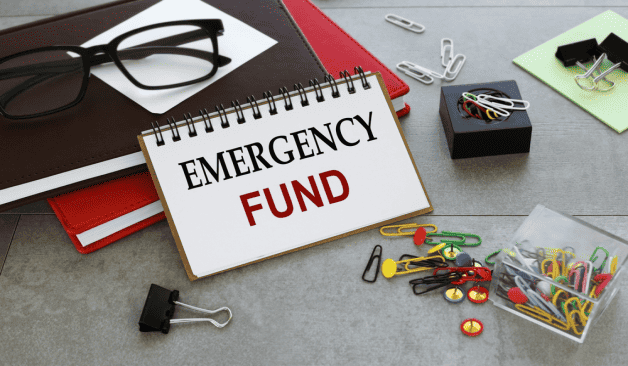
Importance of Emergency Funds
Let us start today's article with a story. There is a lot to learn from it, so pay attention.
Alok, a diligent software engineer, lived in Mumbai. In 2022, he found himself caught in the web of unexpected expenses. His parents' health took a sudden turn, and medical bills piled up faster than he could anticipate. Alok, unlike many Indian investors, had diligently invested in various financial instruments for long-term goals. However, he realized the importance of having an emergency fund during unforeseen crises.
Alok had the foresight to maintain a robust emergency fund, which became his financial lifeline during this challenging period. The fund covered the medical expenses and acted as a buffer, preventing him from liquidating his long-term investments prematurely. Alok's experience highlighted the significance of having a dedicated emergency fund, providing them with financial stability and peace of mind in the face of unpredictable circumstances.
Can you imagine the situation if Alok had not created an emergency fund? Could you have managed to sail through the situation if you didn't have an emergency fund? If you cannot answer, let us talk about emergency funds in detail, and at the end, you can answer the question.
What is an emergency fund?
Our life is unpredictable. Therefore, we need to be prepared for the unexpected. An emergency fund is one such way to prepare for the unexpected. It is a financial cushion that acts as a safety net during unexpected and financially challenging times, as we have seen in the case of Alok. Regardless of your financial goals, having a dedicated pool of funds set aside for emergencies is a fundamental cornerstone of a robust financial plan.
From sudden medical expenses and car repairs to job losses or economic downturns, emergencies can disrupt financial stability in the blink of an eye. It is where an emergency fund plays a crucial role, providing financial security and resilience against the uncertainties that life may throw your way.
Importance of emergency funds
Let us look at the importance of emergency funds.
Protection against the unexpected: As we have discussed, you can be in a situation of health crises or unexpected home repairs. Without a financial safety net, you can be in a situation where you may have to take out loans at a high-interest rate or withdraw your long-term investments to manage the crisis. An emergency fund offers you quick and accessible funds without the need to withdraw your other financial assets.
Prevent debt accumulation: Debt is not good for anyone's financial journey. If you don't have an emergency fund, in an emergency, you are forced to use your credit card or take a loan (mostly a personal loan). It can lead to a cycle of debt that becomes increasingly challenging to break free from as the interest rates here are too high. An adequately funded emergency fund allows individuals to handle unexpected costs without accumulating high-interest debt, preserving their financial well-being in the long run.
Peace of Mind and Financial Freedom: What would you say? If you were to answer the most crucial thing for you, most people would say peace of mind. Having an emergency fund brings peace of mind. It empowers you to face challenges with confidence without the constant worry of how you will manage a sudden financial setback. This peace of mind is invaluable, contributing significantly to overall mental well-being and enhancing one's ability to make sound financial decisions.
How much emergency fund should you have?
Now that you know the importance of emergency funds, you may plan to create your own emergency fund. But how much should I keep in the emergency fund? In this section, we will answer it for you.
The size of an emergency fund varies from person to person based on factors such as income, expenses, and individual circumstances. So, there is no universal answer to it.
As a general rule of thumb, financial experts recommend setting aside three to six months' worth of living expenses in your emergency fund. It ensures an adequate buffer to cover essential costs during a temporary financial setback. If you have a stable and secure job, you may opt for the lower end of the range, and if it is not too secure, you may opt for a higher emergency fund.
Where to keep your emergency fund?
The last question on your mind would be: where to keep the emergency fund? The ideal location for an emergency fund is in a readily accessible, low-risk account that ensures liquidity while preserving the principal amount. A high-yield savings account, liquid mutual fund, or a fixed deposit that you can break without significant penalty is recommended. These accounts offer a balance between modest interest rates and immediate accessibility.
Before you go
The importance of an emergency fund cannot be overstated in the realm of personal finance. It is a proactive and strategic measure that prepares individuals for the uncertainties of life, offering a financial safety net that fosters stability, resilience, and peace of mind. Whether you are a seasoned investor or just starting your financial journey, prioritizing the creation and maintenance of an emergency fund is a key step toward building a secure and prosperous financial future.










